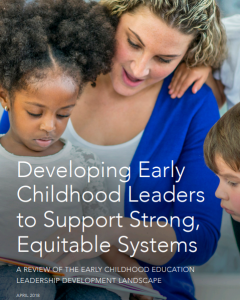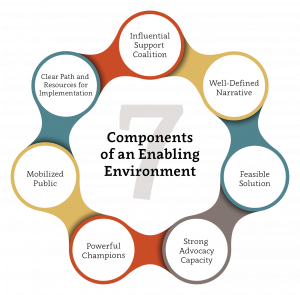Reflecting on More Than a Decade in Philanthropy

Each year at this time, we pause to reflect on the past 12 months and look forward to the next 12, taking note of the inspiring work we get to do with our remarkable partners and teammates. This year, though, I found myself thinking less about the past 12 months than about the past 13 years—the time since Arabella Advisors was founded. So, I asked several senior members of the Arabella team to reflect on how philanthropy—and Arabella’s work—has changed in those years. They pointed to six main trends.
#1 – The Ongoing Growth of Strategic Philanthropy
 Arabella was built amid and has helped feed the growth of strategic philanthropy, which supplements good-old-fashioned check writing with the identification of desired outcomes, development of diverse strategies to achieve them, and tracking of impact tied to those strategies. The firm’s founder hoped, but certainly didn’t know, that 13 years later hundreds of the world’s most enterprising philanthropists would be employing the Arabella team to design and implement strategies for impact at the local, regional, national, and international levels.
Arabella was built amid and has helped feed the growth of strategic philanthropy, which supplements good-old-fashioned check writing with the identification of desired outcomes, development of diverse strategies to achieve them, and tracking of impact tied to those strategies. The firm’s founder hoped, but certainly didn’t know, that 13 years later hundreds of the world’s most enterprising philanthropists would be employing the Arabella team to design and implement strategies for impact at the local, regional, national, and international levels.
Over the years, the practice of strategic philanthropy has become increasingly sophisticated—and it continues to develop in the context of both an ever-changing world and the emergence of new and innovative tools for driving change, including several of the tools discussed below.
#2 – More and Better Collaboration
Thirteen years ago, most donors worked alone. They met up and talked shop, but they rarely aligned strategies, pooled funds, or made investments together. Since then, many more have recognized that significant philanthropic impact typically requires considerable collaboration—with other donors, grantee partners, members of affected communities, leaders from other sectors, etc.
Our partners increasingly look to collaborate with others on efforts both global and local, and the effects are often remarkable. We’ve had the privilege to help advance a wide range of such work: linking funders, advocates, and policymakers to address gun violence in America; convening executives, investors, philanthropists, and farmers to grow good food supply chains; connecting foundations, corporations, health practitioners, and community leaders to treat infectious diseases; and more. Now more than ever, making the journey from good ideas to sustainable impact requires navigating, managing, and activating diverse networks and partnerships—including partnerships with the people most affected by our work.
#3 – Increasing Focus on Equity
 Every Arabella team member I talked to pointed to the increasing focus on diversity, equity, and inclusion (DEI) as a trend with the potential to change philanthropy—and our society—for the better. Two years ago, Arabella publicly told the story of our own efforts to become more diverse, equitable, and inclusive and shared a tool designed to help philanthropists concerned with DEI in their grant making (learn more here).
Every Arabella team member I talked to pointed to the increasing focus on diversity, equity, and inclusion (DEI) as a trend with the potential to change philanthropy—and our society—for the better. Two years ago, Arabella publicly told the story of our own efforts to become more diverse, equitable, and inclusive and shared a tool designed to help philanthropists concerned with DEI in their grant making (learn more here).
More recently, we’ve been working with partners to develop new models for engagement with frontline communities and grassroots organizations and helping to launch a variety of projects designed to advance racial, social, economic, and environmental justice. These efforts—such as the Heartland Fund, a new donor collaborative designed to strengthen long-neglected communities throughout the Midwest—have the potential to improve philanthropic practice even as they strengthen our communities and society.
#4 – Innovation via Fiscal Sponsorship
According to one Arabella leader, “the growth of fiscal sponsorship is modern philanthropy’s great untold story.” He has a point. Fiscal sponsors offer a simple and cost-effective way to launch and incubate new nonprofits, test out innovative philanthropic ideas, align donors and others around shared interests, and nimbly move resources to where they’re most needed. They can provide a bridge between large foundations and grassroots grantees, as well as between institutional funders and individual givers.
Arabella now manages four independent fiscal sponsors: the New Venture Fund, the Hopewell Fund, theWindward Fund, and the Sixteen Thirty Fund. Through them, we’re helping our partners drive hundreds of projects, coordinate dozens of donor collaboratives, and manage more than a thousand grants every year. Each of these fiscal sponsors has its own mission and areas of expertise, but we get to see their work up close. All rely on the Arabella team as an engine for driving efficiency, best practice, and increased impact.
#5 – More Advocacy for Better Public Policies
 Many philanthropists have been hesitant to engage in efforts to build political will and advance public policy through a
Many philanthropists have been hesitant to engage in efforts to build political will and advance public policy through a
dvocacy work. That’s changing, as many of our partners have concluded that accomplishing their philanthropic goals requires creating, implementing, and defending intelligent and effective public policies at the national, state, and local levels.
We’ve now worked for more than a decade to help such donors devise and implement tactically sophisticated, fully compliant advocacy programs—work that helps to conserve precious habitats, protect our shared climate, extend and defend fundamental human rights, improve health care provision, and even strengthen democracy itself. Difficult as the current political context can be, we continue to see opportunities daily to work across divides and advance public policies that enable our communities to thrive.
#6 – The Coming-of-Age of Impact Investing
Last but by no means least, impact investing—the practice of using return-seeking financial investments to pursue philanthropic goals—was practically unknown 13 years ago. Today, the practice is going mainstream and becoming ever more sophisticated.
Five years ago, the Arabella team was fielding so many questions on impact investing from smaller foundations, we decided to help write a book on the topic. (See Essentials of Impact Investing.) More recently, we’ve been working with the fiscal sponsors listed above to build and manage collaborative impact investing funds and flexible social financing vehicles. Through these vehicles, we’re now enabling funders to pool capital that can be used to make various types of investments—from grants to loans to equity investments—in organizations and companies that are working to advance the causes they care about.
From my perspective, all six of these trends are likely to continue and even accelerate in 2019 and beyond. Collectively, they represent the ways philanthropy is becoming more dynamic, agile, inclusive, and effective. As always, the team at Arabella is dedicated to innovating to help our partners respond accordingly, and we’re better positioned than ever to do so.
As my colleagues reminded me, it hasn’t been that long since Arabella was just a handful of people with aspirations to help others achieve greater good. Now, we have a deep and experienced team; a vast network of experts, policymakers, funders, and frontline changemakers; and a platform designed to help any donor go all the way from idea to impact.
Realizing that, I’m struck by just how fortunate I am both to get to do this work and to get to do it with the teams and people I do. On behalf of everyone at Arabella Advisors, thank you for the part you play as one of those people. We wish you the happiest of holiday seasons and a successful, impactful 2019.
